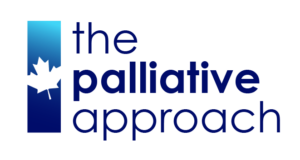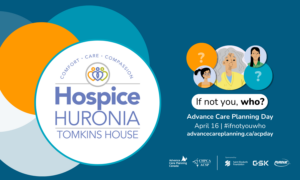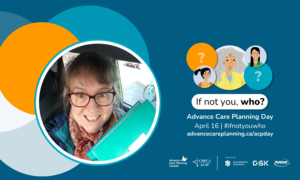Summary:
- Advance Care Planning (ACP) is for everyone!
- It may feel like life is “too busy” for ACP—but the busier you are, the more reasons you have to be planning for your future.
- A Legacy Coordinator can guide you through the Planning process so that you can just focus on what’s important to you: protecting your values and your loved ones.
If someone had asked me 10 years ago (at the ripe old age of 27) what my Advance Care Plan looked like, I wouldn’t have had the first clue what they were talking about.
Nowadays, as a professional working in the Aging & End of Life Planning industry, Advance Care Planning is something I think about a lot. But quite frankly, looking around at my other friends in their thirties and beyond, I think I might still be the only one who really understands what this term means—or why it’s so crucially important. And that needs to change.
What is Advance Care Planning?
Advance Care Planning (ACP) means writing out your wishes and instructions for your own future health care. This Plan is designed to be used if you ever end up in a position where you’re no longer able to make healthcare decisions for yourself—for example, if you’ve been very seriously injured or you’re suffering from an illness that affects your thinking or communication abilities.
Advance Care Plans can also do things like appoint a Power of Attorney or name somebody to make healthcare decisions for you.
You’re Never Too Young for Advance Care Planning
As of 2021, 72% of Canadian Millennials did not have a Last Will & Testament in place. It’s safe to assume that the numbers for ACPs are probably even lower.
The same study found that among Millennials, one of the biggest barriers to creating an ACP is a lack of time. That makes perfect sense: Millennials are at a crazy stage of life right now where they’re working 40+ hours a week, paying incredibly high interest rates on their mortgages (thanks, Bank of Canada), and potentially raising children. There is way too much going on in their lives to think about Advance Care Planning.
But that’s why it’s so important! The crazier life gets, the more potential there is for sh*t to hit the fan if something unexpected happens. You have a lot of balls in the air right now. Imagine what would happen if you were suddenly unable to catch them.
At the end of the day, ACP isn’t just about you. You’ve got a busy life. You’ve got lots of people relying on you, potentially including children. You need to think about what’s going to happen to those people if you’re suddenly incapacitated.
Expect the Unexpected
The unfortunate reality is, life can change in the blink of an eye. Sorry to be morbid, but that’s the truth.
You could step outside five minutes from now and get hit by a bus.
You could find out you’re suffering from terminal cancer and you’ve only got a few months to live.
You could end up with early-onset Alzheimer’s, diabetes, and more.
Based on these scenarios alone, there are a bunch of questions you need to answer in your ACP:
- If you are hit by a bus and you are incapacitated, what medical interventions do you want? (FYI, medical staff are not as easy going as they appear on Grey’s Anatomy!)
- If you find out you have terminal cancer, how do you want to live out the remaining weeks/months of your life?
- If your spouse finds out that they have Parkinson’s Disease, do you know how you would change your lifestyle to support their deteriorating condition? Do you know what they would want you to do for them?
On top of figuring out your own wishes, ACP also means financially planning for a range of scenarios. For example, your mom may be dead set against moving into an assisted-living facility or retirement home—but who’s going to take care of her in her home if you find out she has dementia and needs ‘round-the-clock support?
ACP is an Opportunity for Reflection and Connection
Answering questions like the ones above is the core of ACP. It’s a process of reflecting on your values and the things that are important to you in life.
That can be hard—but it can also be incredibly rewarding. Advance Care Planning gives us a chance to sit down and really think about the things we cherish in this life, and what we want our legacy to look like after we’re gone.
We are privileged enough to live in a society where we get to make choices about our life and our death. We live in a country that supports medical assistance in dying, the right to choose where you die (hospital, hospice, or your home), and more. This is not a privilege that everyone in the world has. We need to talk more about taking ownership of our lives—and our deaths.
Writing up your ACP is also an opportunity to ask your loved ones to do the same. Do you know what your parents’ answers to all the above questions are? Would you know what to do if either of them became unable to make their own medical decisions? As their child, you are entirely within your rights to nudge them to think about these questions and write up an ACP if they don’t have one yet.
As I like to say: Your parents made you sit through a sex talk. You can make them sit through an aging talk.
How to Get Started with Advance Care Planning
Even if you recognize the importance of ACP, it can be hard to get the ball rolling. And that’s okay!
It’s only human to struggle with these topics. We’re talking about confronting our own mortality here. There’s a reason so many of us put it off for so long.
Not only are these scary conversations to have, you also might be unsure of how to get started. There’s so much to tackle here—where do you even begin?
If this sounds like you, working with a Legacy Coordinator is the easiest way to kickstart your Advance Care Plan. As experienced Aging & End of Life Planning professionals, they know exactly what questions to ask and exactly how to guide you through the whole process. Not only that, but they can also take all of the logistical and bureaucratic work off of your plate so that you’re able to just focus on what’s important to you: your relationships, your values, and your legacy.
Aging & End of Life Planning is difficult—but we promise, it’s well worth it. Having tough conversations today will save you unfathomable stress and heartache tomorrow.
Mallory McGrath is the Founder & CEO of Viive Planning. Mallory is a wife, daughter, mother, sister, and friend. She advocates for Aging & End of Life Planning to help families to create open lines of communication and avoid tensions as they all continue on their journeys through life.






